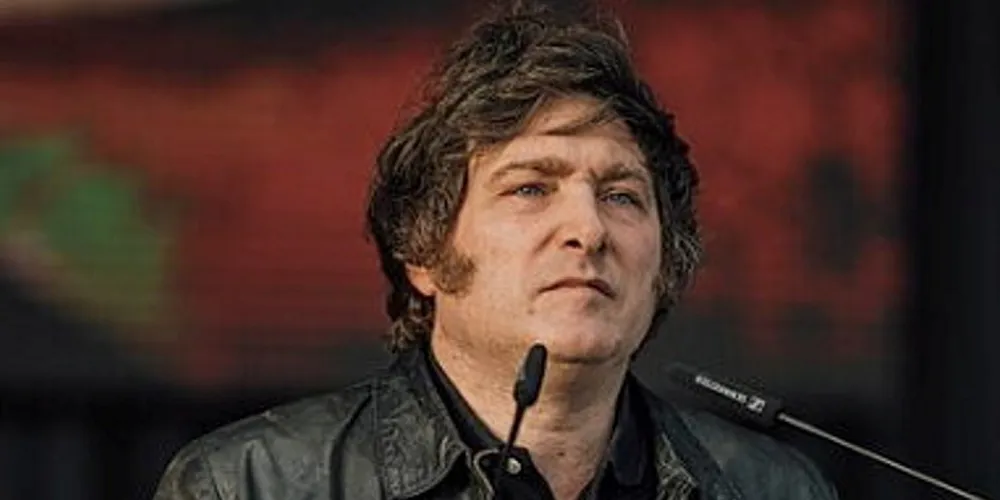Why climate sceptic Milei's win as Argentina's new President may not be all bad news for renewables
Influential role for ex-Iberdrola man suggests hardliner is open to opportunities for wind and solar

Javier Milei, the hardline economic liberal who won Argentina’s presidential run-off vote on Sunday, is a climate sceptic who has threatened to do away with the country’s ministry for the environment and sustainable development – but his promise to unleash private sector investment could offer opportunities for renewables too.
Discontent about the effects of soaring inflation and runaway depreciation of the Argentine peso carried Milei to victory on Sunday, as his rival, economy minister Sergio Massa, trailed with 44% of the votes cast.
A political outsider who has been compared to successful right-wing populists such as former US President Donald Trump and Brazilian ex-leader Jair Bolsonaro, Milei has a strong libertarian streak.
During campaigning he underscored his promise to dollarise the inflation-ravaged Argentine economy with a threat to “blow up” the central bank in Buenos Aires.
In a Trumpian victory speech to supporters in Buenos Aires on Sunday Milei said: "Today begins the end of Argentina's decline… Argentina will return to its place in the world that it should never have lost. We are going to work shoulder-to-shoulder with all nations of the free world, to help build a better world."
Milei has questioned the veracity of climate change on numerous occasions in the past and frequently described it as “a lie of the socialists”.
In a tirade that was widely circulated on social media in Argentina in August, Milei included the environment and sustainable development ministry among a long list of “bloated” departments that he would do away with if elected.
This ministry was created in its current form in 2015 when Argentina was drawing up its national adaption plan within the framework of the COP climate change framework.
No more subsidies
The election manifesto of Milei's Liberty in Motion movement sets out plans to do away with the system of subsidies that keeps domestic energy prices down but has been blamed for diminishing the flow of investments to a country that has "world class" deposits of shale oil and shale gas in the Vaca Muerta formation, in north-western Patagonia.
The manifesto states: “The current energy system is uninvested, unfinanced and at risk of collapse. Supply companies… distort the price signal that the market needs to make economic calculations needed to invest, grow and create an efficient energy system".
The manifesto reflects the widely-held view that Argentina could be a much bigger supplier in oil and gas markets, but is not hostile to renewables, and pledges to reform the regulatory systems for several sectors in order to attract investments, including green power, along with oil and gas and forestry.
Argentina is widely recognised as offering some of the best conditions for generating wind power anywhere, especially in southern regions of Patagonia, with enormous potential offshore too.
In 2022, Patagonia accounted for about half of Argentina's installed wind capacity of around 3.3GW, but the Global Wind Energy's Council's latest global markets report said this could have been much higher were it not for the economic instability that has dogged the nation.
Chirillo role
Milei has also criticised Argentina’s poor track record on fulfilling contractual obligations, arguing that this deters companies from investing.
Reports in the Argentine press suggest that energy consultant Eduardo Rodriguez Chirillo, whose experience includes seven years with Spanish energy giant Iberdrola, has become Milei's most influential adviser on the energy sector.
In addition to its huge potential for developing wind, solar and green hydrogen capacities, Argentina holds important deposits of critical mineral, including lithium and, as such, has been attracting the attention of the European Union in recent months.
In June, the EU and Argentina's President Alberto Fernandez signed a Memorandum of Understanding outlining a future partnership on "sustainable raw material value chains".
In July, a second agreement on marketing liquefied natural gas to Europe in exchange for cooperation on green energy was signed.
(Copyright)